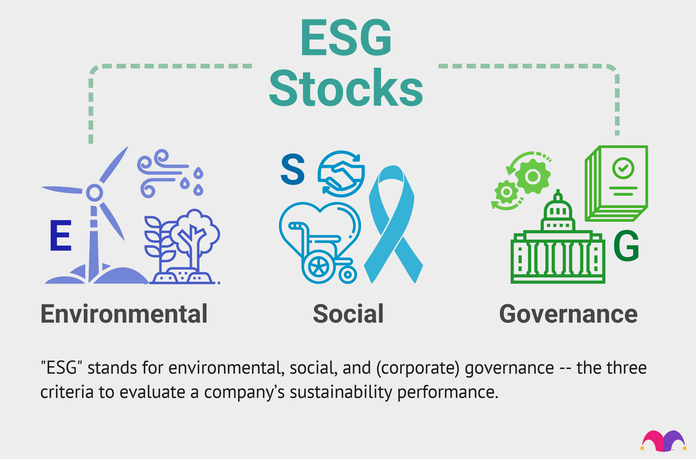Fuente: Harvard Law School Forum on Corporate Governance
Autores: Hannah Orowitz and Rajeev Kumar, Georgeson
Companies are increasingly facing opportunities and threats from environmental, social and governance matters. Is your board at risk?
As a board member it is critical to stay informed and up to date to ensure effective oversight over strategy and risk as well as to manage the company’s ability to meet rapidly evolving investor, market and regulatory expectations. An important course of action is to understand how investors are assessing directors when it comes to ESG matters. Read on to find out how you can identify any weaknesses and prepare your board to withstand increased investor scrutiny.
ESG is on the agenda
Historically many ESG matters, in particular the “E” and the “S” issues, were not considered “board business.” Now, many directors expect to see ESG topics appearing on their meeting agendas. However, the fact remains that many boards lack the context and understanding of ESG to successfully shape and oversee its strategy for their organizations.
While directors’ duties have not changed, investor expectations have. Board leadership and oversight is now essential to integrating ESG into the company’s overall strategy and measuring, managing, and communicating progress. These matters have taken a firm hold across companies of all sizes, all industries and all markets, meaning boards cannot afford to be complacent when it comes to ESG.
A universe of oversight
As investors continue to increase their expectations around board oversight, it’s clear that boards must pay greater attention to a broader range of issues than ever before. This exposes new areas of responsibility and has the potential to raise new questions regarding board conduct and competency.
With only 45% of directors indicating that ESG issues were a regular part of their board’s agenda in 2020, [1] it is evident there is yet more work to be done to ensure that directors have adequate knowledge and skills to successfully oversee ESG matters.
With the rising interest in the board’s role in overseeing ESG issues, such as workplace diversity and climate change, and overall sustainability strategy and reporting matters, investors are measuring how ESG matters that are material to a company’s financial performance are being managed—and they expect directors to have the relevant skills and ability to articulate the company’s unique ESG story. Investors are also voting against directors if they perceive a lack of progress on material ESG issues, and this trend is expected to continue.
Understand how your directors are being assessed
Your company can help investors understand the extent of the board’s oversight by providing transparent and comparable disclosures, aligned with ESG standards and frameworks such as the Sustainability Accounting Standards Board (SASB) and the Task Force for Climate-related Financial Disclosure (TCFD). But it’s also crucial to understand how investors are assessing directors’ capabilities and actions.
In the year up to June 30, 2021, BlackRock voted against 255 directors and against 319 companies for climate-related concerns with the potential to negatively impact long-term shareholder value. BlackRock has also sharpened its focus on other ESG factors when evaluating its support of director elections with the firm expecting its portfolio companies to provide disclosure aligned with the TCFD framework and SASB standards.
Vanguard anticipates that the greatest board diversity risks in 2021 will be companies with 0% board gender diversity, 0% board racial or ethnic diversity, or a lack of board diversity disclosure and policy.
Additionally, beginning in 2022, State Street Global Advisors will vote against directors in its portfolio if the company’s R-Factor™ [2] score places them in the bottom 30th percentile of their industries and Fidelity International will begin to vote against the management of its portfolio companies on the basis of climate change and gender diversity.
Increasingly, voting decisions are made based on director expertise and how they manage ESG strategy, so it’s critical that every member of your board and management clearly understands the ESG landscape and what matters specifically for your company.
Top 10 institutional investor proxy voting guidelines—ESG and diversity
| | ESG Incorporated in Proxy Voting? | Specific Board Diversity Guideline |
|---|---|---|
| BlackRock | Yes | BlackRock expects companies to have at least two female directors on their board. If a company has not adequately accounted for board diversity within a reasonable timeframe, BlackRock may vote against members of the nominating/governance committee. |
| State Street | Yes | If a company in the S&P 500 does not disclose, at minimum, the gender, racial and ethnic composition of its board, State Street will vote against the chair of the nominating committee. |
| Vanguard | Yes | The Vanguard funds may vote against directors at companies where progress on board diversity falls behind market norms and expectations and they may hold nominating committee chairs or other relevant directors accountable. |
| Dimensional Fund Advisors (DFA) | Yes | No specific board diversity guideline. |
| American Funds/Capital Group | Yes | No specific board diversity guideline. |
| Fidelity International | Yes | Where companies consistently fall short of market/sector practice with respect to board gender diversity Fidelity expects them to adopt objectives for more equitable representation and demonstrate progress over time. In addition, if a board is not seen to address this issue seriously, additional measures may be considered, including voting against the re-election of the chair. |
| Invesco Advisers | Yes | Invesco will generally vote against the incumbent nominating committee chair of a board where women constitute less than two board members or 25%, whichever is lower, for two or more consecutive years, unless improvements are being made to diversity practices. |
| JP Morgan | Yes | JP Morgan will generally vote against the chair of the nominating committee when the issuer does not disclose the gender or racial and ethnic composition of the board. |
| Legal & General Investment Management | Yes | LGIM expects all companies to have at least one female board member and expects companies to promote diversity throughout the broader organization. LGIM will also vote against companies in the S&P 500 and the S&P/TSX that have fewer than 25% women on the board. |
| Northern Trust Investments | Yes | Northern Trust believes that an effective board should be comprised of directors with a mix of skills and experience, this includes diversity of background, experience, age, race, gender, ethnicity, and culture. Northern Trust may vote against one or more directors where they have concerns relating to the composition and diversity of the board. |
| Nuveen Asset Management | Yes | Nuveen Asset Management generally votes in favor of the board’s nominees but will consider withholding or voting against some or all directors when there is insufficient diversity on the board and the company has not demonstrated its commitment to diversity. |
| T. Rowe Price Associates | Yes | For companies in the US and Canada, T. Rowe Price Associates will generally oppose the re-elections of governance committee members if no evidence of board diversity is present. |












